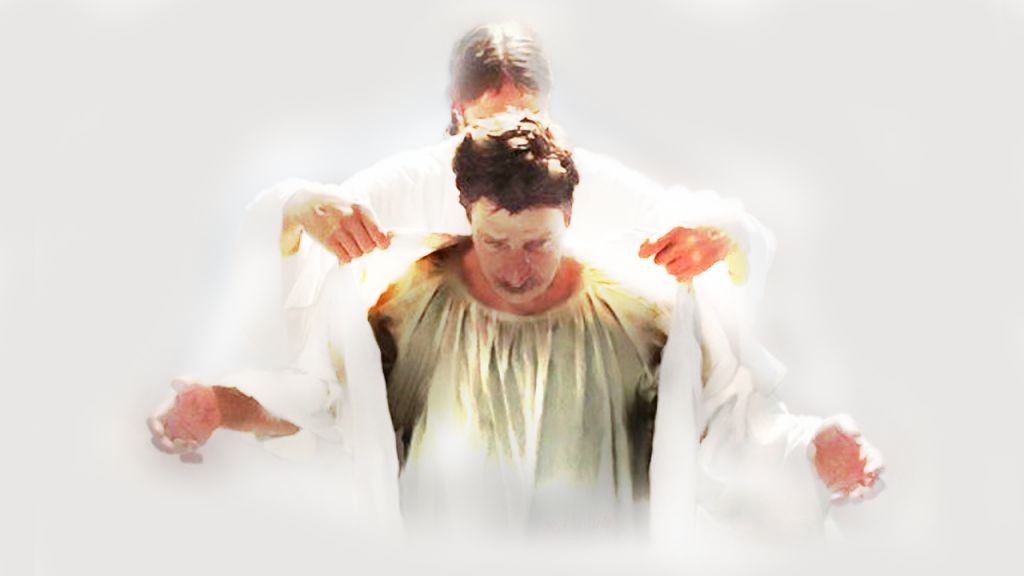
Introduction
The book of Revelation includes, in chapters 2 and 3, an ‘audit’ by Christ on the spiritual health of seven churches. The book was written possibly before 95 or 96 AD. This would have been about sixty years after the first church had been established in Jerusalem. Of the seven churches examined, only one did not need any qualification by Christ.
Background to the Church at Ephesus
The first letter recorded is that of the church at Ephesus (Rev 2:1-7). Ephesus was an important port of entry from the Mediterranean Sea to Asia Minor (present-day Turkey). It was also a vibrant commercial centre. The cult of the Greek goddess, Artemis (Diana to the Romans) flourished there. The temple of Artemis was one of the seven wonders of the ancient world. It provided business opportunities to artisans in the city (Acts 19:24-41).

Paul established the church at Ephesus around 51AD with Priscilla and Aquila, on his second missionary journey (Acts 18:18-21). On his third missionary journey, he remained for more than three years at Ephesus, from around 53 to 56 AD (Acts 19:1-10; 1 Cor 16:8). It was to be a base for the spread of the gospel to the rest of Asia Minor. Timothy was also based there later, replacing Paul (1 Tim 1:3). William Barclay records the early church fathers stating that John also pastored at Ephesus. This was just before John was imprisoned on Patmos, the island where he wrote Revelation.
Paul had sent an epistle to the church at Ephesus possibly around 60 AD. This was about thirty five years or more before the present revelation of Christ was given to John. The Ephesus church also received Paul’s two epistles to Timothy. The church would also be familiar with the contents of John’s three epistles. Paul wrote 1 Corinthians from Ephesus.
Hence, the church at Ephesus was an apostolic church with a firm foundation in the gospel (Eph 2:20). However, as a centre for the worship of the goddess Artemis, the church there was constantly overshadowed by this cult and under attack from the powers of hell. To survive this, the church had to ensure that they had their doctrine intact.

Christ’s Letter to the Church at Ephesus
Christ knew the hard work of the church, the actions they were taking and their strong commitment to the work in the midst of their hardship. He also knew that the church members would not tolerate the work of evil men. The church tested those persons who labelled themselves ‘apostles’. An ‘apostle’ is someone who follows the teachings about Christ, passed down from the disciples. The church was successful in weeding out false apostles. After all, it had a firm foundation as an apostolic church. The members endured what they were involved in for the sake of Christ’s name. They never gave up their commitment and were never tired of what they were dedicated to (v 2&3). Also, they hated the actions of the Nicolaitans (v 6).
The Nicolaitans
The church at Ephesus did not hate the Nicolaitans: only their actions. The Bible does not preach hatred of people but only of their actions. We are to love our enemies as Christ said (Matt 5:44). The word Nicolaitan means, in Greek, ‘to conquer people’. Not much is known about the Nicolaitans.

William Barclay says that the Nicolaitans were probably preaching ‘an improved and modernised version of Christianity’. Churches are always infiltrated by ‘Nicolaitans’ who teach heresies or claim new interpretations of the gospel (apostasy). They aim to rob the power of the gospel by manipulating or diluting its content. They effectively end up drawing people away from the truth of Christ. This is the work of the devil that they serve, whether knowingly or unknowingly. But the church at Ephesus was apparently doctrinally-sound. They hated the actions of the Nicolaitans just as Christ also hated the very same thing. So far so good, it appears.

The Error of the Ephesian church
But in verse 4 of the chapter, Christ says that He has something against the church at Ephesus. Christ makes a very strong comment. He says in verse 5 that they had fallen. He asks them to repent. He demands that they go back to doing what they had done at first. He reinforces the word ‘repent’ by repeating it at the end of the same verse. He says ‘or else’ (this is an ultimatum) He would remove their lamp stand. The loss of their lamp stand would mean the total destruction of their church by Christ Himself (Leon Morris, ‘Tyndale New Testament Commentary on Revelation’ page 61).
In verse 7, Christ speaks of ‘overcoming’. In all seven letters to the churches, and in 21:7 in the book of Revelation, Christ mentions ‘overcoming’. Overcoming in John’s gospel and his epistles means to overcome the world (John 15:33). Either the love of Christ, or the love of the world dwells in us (1 Jn 2:15). Specifically in Ephesus, it means overcoming their fall by repenting and returning to their first deeds. Only then would the church members be enabled to obtain eternal life in the Kingdom of GOD (v7).

The Love of Christ—the first love
In verse 4, Christ spelt out their first love as the ‘love of Christ’. They had clearly ‘left’, ‘given up’, ‘abandoned’, ‘forsaken’ or ‘lost’ this first love that they had of Christ, depending on the version of the Bible that we read from. This was what Christ held against them. The NIV speaks of the ‘height’ that they had fallen from, indicating that it was a great fall (v 5).
It is not that the church at Ephesus did not know about the love for Christ. They had that love when they first started out forty five years before but they had lost it decades later. Ten years after they had started out as a church, Paul had sent a general epistle specifically addressed to them that included teachings on ‘love’. (Eph 1:4 &5; 2:4; 3:17-19; 4:2,15; 5:2, 25, 28 & 33; 6:23& 24). He wrote to them about being rooted and grounded in the love of GOD which was above all human knowledge (Eph 3:17-19). The final two verses of the letter had salutations with ‘love’ in them. Paul sends them love with faith from Christ and the Father, and he also speaks of the love for Christ being incorruptible (Eph 6:23 & 24). All this had disappeared from their lives as a church.

Commentators on the Ephesian Church in Revelation
Charles R Swindoll says that the Ephesian church had a ‘discerning orthodoxy’ that is, they knew exactly, what the traditionally-correct doctrines of the faith were. He states, however, that the intensity of their love for Christ had weakened.
Matthew Henry says that the first affections towards Christ are usually ‘lively and warm’. So the church had become cold or lifeless to Christ. A cold church would fail the purpose for which it was set up. This was to present the person of Christ to the world. Leon Morris states that the Ephesian church had embarked on a ‘loveless course’.
Warren Wiersbe says that only as we love Christ fervently could we serve Him faithfully. The church which loses its love, he says, would soon lose its light no matter how doctrinally-sound it may be. A church without a light would be of no purpose to GOD (Matt 5:14).

John Constable of Dallas Theological Seminary, states whilst service and orthodoxy are important in church life, Christ wants our love when we do His work.
It is clear then, that the church at Ephesus was doing the ‘right’ things as Christ said. However, they were doing them for the wrong reason. They had lost the love of Christ. They hardly had any relationship with Christ, it seems. Without that love of Christ they were simply ineffective. Christ was not involved in the very things that they were doing for Him. What they did really amounted to nothing and depended on their own energy, or was done by habit (Matt 7:21-23; John 15:5).
Legalism may have taken over, that is to say, doing things because they are to be done, with no love being applied to those efforts. This amounts to back-sliding. Intensified activity-generation is the security the world offers. Hence, the Ephesian church had a spirit of the world in them as opposed to the love of Christ.

Watchman Nee in ‘The Normal Christian Life’ pg 173, states that ‘it is easy to become more attached to the gifts of GOD than to the Giver, and even I should add, to the “work” of GOD than to GOD Himself.’
Church is not just doctrine, activity and organisation (which are important).It is the loving relationship with Christ which is the spiritual basis of our doctrine, activity and organisation. This is more important.
Love—the basis of our Relationship with Christ
One word explains the Bible from Genesis to Revelation and this is the word ‘love’. GOD’s nature is love (1 Jn 4:8). God had predestined us to be adopted as His sons before the foundation of the world because of His love for us (Eph 1:4-5). We love GOD because He first loved us (1 Jn 4:19). He did this through the agency of His Son (John 3:16-18). GOD’s love was shown to us because Jesus took the form of humanity whilst we were yet sinners. This was done to destroy the price, penalty and power of sin on our behalf.

Love is the basis of a marriage. The church is considered the bridegroom of Christ (Luke 5:34; Rev 19:7-9). It is the love of Christ that is to control us (2 Cor 5:14).
The Greek language has four words to mean love:
- ‘eros’: desire but this is more carnal/worldly, than spiritual;
- ‘philia’ : affection for relatives and friends;
- ‘storge’: the natural affection between mother and child;
- ‘agape’ the perfect love that GOD has for us which is self-giving and unselfish.
The first three forms of love are affected by sin. GOD’s love, ‘agape’ is sovereign, free and gracious. He gives us His forgiveness and blessings because of His character, will and purpose. It is not on the basis of any superior merit/effort that we may deserve this love (Deut 7:6-9; Eph 2:8-9; Rom 3:20-28). No one is to be considered better than another (Rom 12:10; Gal 5:26; Phil 2:3).

The two greatest commandments are, for us to love GOD and to love our neighbour as ourselves (Matt 22:37-39; Mark 12:29-31; Deut 6:5; Lev 19:18b; 1 Jn 4:20-21). Unless we love GOD, we are unable to love our neighbour. We need the love of GOD to be in us. This enables us only then to love others. The purpose of loving our neighbour is to be used as Christ’s agency to make disciples of all nations (Matt 28:18-20; Acts1:8).
It is important to remember that that the life in Christ is not to love our neighbour first and use this to claim that we love GOD. This amounts to merit. It is putting the cart before the horse. On the contrary, we are to love GOD first and only then can we find the strength from Christ to love our neighbour.

Warnings to Churches
The following, drawn from the church at Ephesus, serve as warnings to churches:
- There is no other object to which our love can be fully attached to, but to Christ;
- Christ requires an active and serious loving relationship with Him if we are to exist as a church: Christ is spiritually jealous and looks out for our total love;
- If a church has no meaningful relationship with Christ, it is likely that He would have no use for that church and would put it out of existence;
- The absence of love in a church brings sadness to Christ and also dishonours Him;
- No church should be subjected to a decline as a church is part of the body of Christ and He is the Head;
- A church may be doctrinally-sound, active in its duties and well-equipped for its role technically, but these alone are no guarantee for it to continue: without the love for GOD, the church is without foundation — Christ is to be the cornerstone (Eph 2:20)— without the cornerstone, collapse would be imminent;
- Christ has warned us about all difficulties that a church is exposed to: we are in the world and living in its shadow but Christ has overcome the world and we are able to do the same thing in His love and in His power, by surrendering everything completely to Him: there is no crisis in a church which Christ cannot be called upon to deal with;
- A church should be alert, watching and praying frequently and have its faith and love in Christ regularly examined: in particular, it should be on the lookout for its own legalism;
- A church must be alert to those who impose heresies or claim new interpretations of the gospel;
- A church must never be lost in its organisation structure and activities: it should examine whether it is directed ultimately by the Holy Spirit—or by an individual or a group of people;
- A church should enjoy the love of GOD in what they do for and with Him—if this joy is missing, they should re-examine their spiritual life as a church.

NOTE: Tony Dibble worships at Endeavour Christian Gathering (ECG), in Perth, Western Australia. Prior to this, he was attending the Church of Our Holy Saviour (COHS), in Labuan, East Malaysia. When in Kuala Lumpur, he worships and preaches at Faith Oasis Fellowship (FOF) Subang Jaya, Selangor.
| Share the Good News |




Leave a Reply